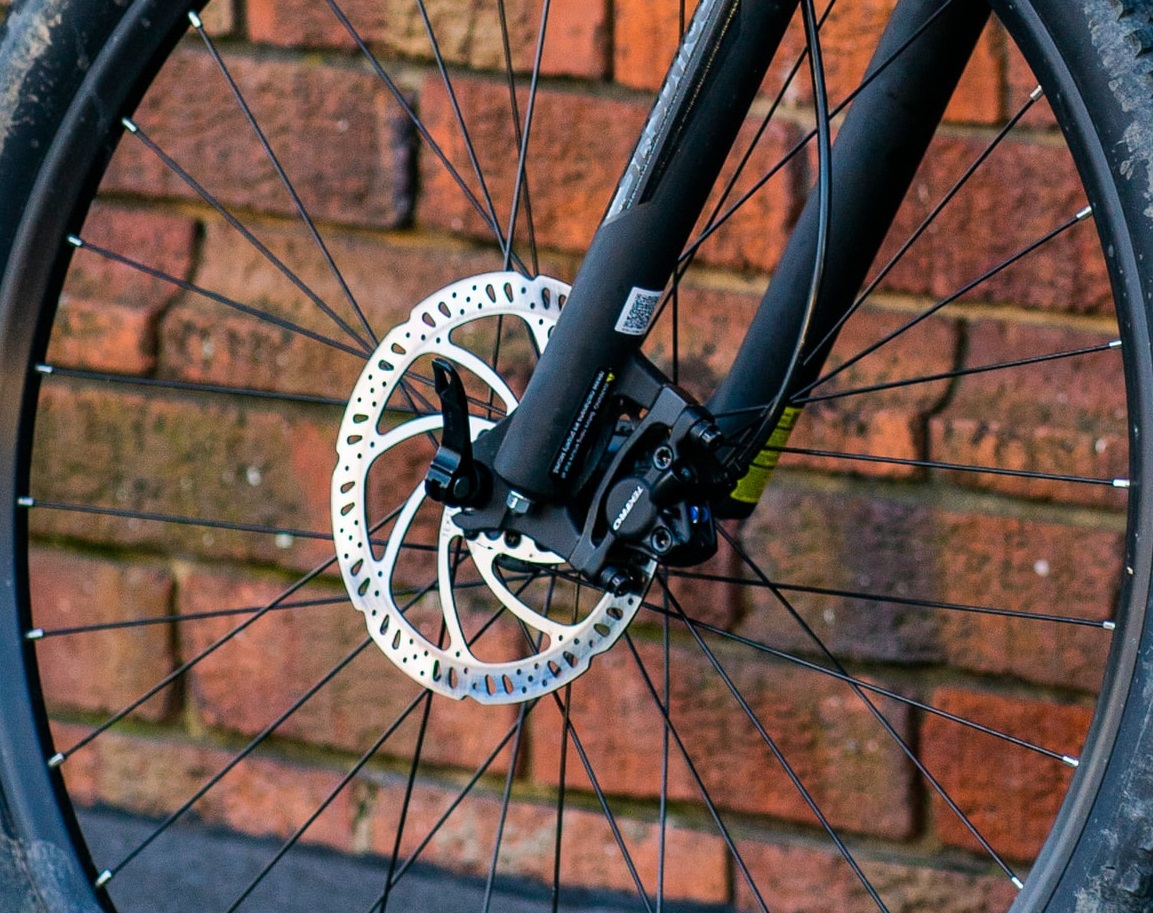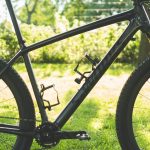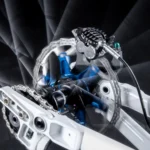There’s nothing quite like the freedom and thrill of riding a mountain bike on your favorite off-road trail. But that fun can quickly be interrupted when you pull on the brake levers and instead of getting strong, smooth stopping power, you’re greeted with a loud, high-pitched squeal coming from your disc brakes. This unintended friction sound can be annoying, undermine your confidence in your brakes, and even prompt concerned looks from fellow trail users wondering if your bike is about to come apart.
Fortunately, with disc brakes now nearly universal on quality mountain bikes, solving common issues like squealing has become a routine, if tedious process for most riders. There are some straightforward steps you can take to stop disc brake squeal and get your mountain bike brakes operating quietly and reliably again. Gaining a general understanding of what causes it and learning a systematic process for diagnosing and addressing the problem will have you rolling smoothly in no time.
Common Causes of Disc Brake Squeal
Disc brakes work by squeezing a brake pad from each side against a central metal rotor that is attached to the wheel hub. When everything is properly aligned and the pads make full, even contact across the entire surface of the rotor, this creates friction that slows your wheels.
But sometimes issues arise that prevent one or both brake pads from mating cleanly across the whole rotor face during braking. This uneven contact causes the pad material to vibrate against the rotor as pressure increases. The surfaces rapidly grab and release rather than sliding smoothly.
This high-frequency stick-slip vibration creates resonance that we hear as an annoying loud squealing or screeching noise emanating from the brake assembly. The same physics that enable disc brakes to provide great stopping power also make them prone to vibration and noise when components are misaligned or contaminated.
Worn Brake Pads
One of the most common causes of disc brake squeal is simply having worn brake pads that need replacement. Brake pads contain a finite amount of friction material bonded to a backing plate. As the brake is used over time, this pad material wears down progressively with each application of the brakes.
Over the course of many rides, worn pads decrease the amount of material available to make full contact with the rotor face. This can allow the backing plate to start contacting the rotor directly in some spots, while pad material still grips in other areas. The uneven friction surface generates vibration under braking forces and leads to the dreaded high-pitched squeal.
Warped Brake Rotors
Similarly, brake rotor discs themselves can become warped over time with repeated hard use. Heavy braking on long downhills frequently overheats rotors beyond their ideal operating range. As aluminum and steel parts expand at different rates when hot, rapid heating and cooling of brake components causes the rotor disc to warp very slightly but noticeably.
Much like worn pads, a warped, wavy rotor fails to provide a uniform gripping surface for the pads to press against. This spotty, inconsistent contact between pad and rotor generates vibration and the noisy squealing effect.
Environmental Contaminants
Beyond just having worn pads and rotors, certain riding conditions can prompt disc brake squeal even with quality components. In wet weather, a thin film or small clumps of mud, grit, and other contaminants can end up clinging to the rotor face. When the brake lever is pulled, these particles interfere with the smooth mating of pads across the entire rotor surface.
Similarly, in very cold or wet weather, a thin invisible film of ice or water can temporarily form between the pads and rotors as pressure is applied. This momentarily breaks traction, causing stick-slip vibration until friction from the pads melts through this film. Most riders have experienced the dreaded tendency for noisy, grabby brakes first thing in the morning after the bike sits out overnight in cold dew or frost.
Accumulated Damage Over Time
Compounding the effect of wet weather riding, the high mineral content of some water supplies can accelerate corrosion of rotor surfaces and caliper hardware over time as well. Rust build up on rotors as well as caliper mounting pins where the pad servo mechanisms attach can interfere with smooth operation. Sticky piston seals inside brake calipers also progressively absorb moisture, causing pistons to gradually stick and hang up during pad retraction.
All these factors introduce tiny issues around uneven pad spacing, calibration and retraction that translate to surface vibration and squealing under braking forces. Paying attention to regular service and overhaul intervals goes a long way to prevent accumulated winter weather damage and contamination from eventually prompting noise issues.
Step-By-Step Resolution Process
While the physics behind disc brake squeal involve some complex dynamics, the good news is that resolving most noise issues in practice requires only basic mechanical competence and methodically working step-by step through the key troubleshooting checkpoints.
Here is an overview of the recommended process to diagnose the root cause and eliminate the vast majority of disc brake squealing:
Visually Inspect Pads and Rotors
As with any brake issue, start by visually checking basic wear items. Remove wheels to inspect the thickness and condition of the brake pads and rotor. Ensure pads are making full, even contact with the rotor surface when squeezed manually.
Check that pad thickness remains above the minimum recommendation listed by the manufacturer, usually about 2-3mm or more of friction material remaining. Also confirm that pad surfaces are relatively smooth and flat. Glazed or unevenly worn pads should be sanded smooth or replaced if worn too thin.
Give brake rotors a close visual inspection as well. Check for cracks, deep grooves, uneven discoloration or spots of minor surface rust. Machine or replace rotors that are deeply scored, warped, or rusted beyond sanding smooth. Measure rotor thickness around the outer braking surface area and replace rotors that are worn below manufacturer spec – usually about 1.5mm remaining thickness.
Thoroughly Clean Braking Surfaces
If rotor and pad condition checks out visually, the next step is to thoroughly clean all braking surfaces to remove oil, grease, or any other contaminants that could interfere with smooth operation.
Use isopropyl alcohol and clean lint-free rags to carefully wipe down the rotor faces, caliper pistons, brake pads, and all the fixed and moving points where the pads slide or retract against their caliper housing mounts. Pay particular attention to cleaning any rust or sticky residue from caliper mounting pins.
Proper cleaning is essential to restore smooth interaction between all components. Any remaining grit or sticky spots will likely perpetuate vibration and noise issues after reassembly.
Lubricate Key Contact Points
Once components are fully cleaned, use a thin coat of high temperature brake lubricant (like Disc Brake Quiet compound) on caliper mounting pins and hardware. Avoid getting lubricant on the brake pad friction surfaces or rotors themselves. The goal is to ensure smooth, consistent retraction and extension of brake pads without hindering rotor grip.
Proper lubrication of caliper guide pins, spring systems, and pad abutment points will prevent vibration transmitted through the mount hardware itself even with high forces applied during braking.
Realign and Reset Caliper Position
The next key step is to realign everything in the proper position with even spacing all around. Loosen the caliper mounting bolts allowing the whole assembly to move freely and center it evenly over the rotor. While squeezing the brake lever, check that each pad makes full contact with the rotor sides simultaneously.
With the pads perfectly centered, dial in any side-to-side alignment adjustments on the caliper mount to fine tune for uniform inner and outer pad spacing per manufacturer specifications. Finally, torque down the caliper bolts to compress any rubber gasket systems and secure the centered position.
Before releasing the brake, carefully insert a plastic tire lever or metal wedge tool to fully depress caliper pistons into their bores, retracting the pads completely away from the rotor to “reset” them to the starting position. Marked changes in positioning or pressing caliper hardware back to baseline can clear up intermittent sticking points.
Bed-In Brakes and Rotors
The final vital step to reliably eliminate brake squeal is properly “bedding-in” refreshed pads and rotor surfaces through controlled heat cycling. Find a safe location like a smooth parking lot that allows for accelerating up to about 25-30mph and safely performing repeated controlled stops.
From speed, apply firm pressure on brakes up to threshold braking power for a full stop without locking up tires. Release the brakes completely and allow the components several minutes to cool off before repeating. Perform about 8-10 of these gradual stops to slowly transfer a thin layer of friction material to burnish the rotor faces. This also adapts the new pads to the pre-existing rotor profile for a nice matched surface shape.
If squealing returns right away after servicing, consider replacing the rotors and repeating this full bedding-in cycle with new matched components. But with the proper methodical process, the vast majority of noise issues can be permanently resolved simply by breaking in existing gear.
The pads and rotors should now fit and seat tightly together with an overall smooth friction interface that damps unwanted vibration under all riding conditions. Be mindful of bedding technique – excess heating too quickly risks glazing pads or damaging components. Focus on controlled gradual break-in to optimize the critical pad/rotor mating process.
Advanced Tips for Really Stubborn Noise Issues
For brake squeal in extreme cases that persists even after methodically trying all the standard best practices above, there are still several advanced troubleshooting techniques and equipment upgrades to consider:
Isolate Vibration Transmission Paths
One helpful method is to experiment with temporarily introducing rubber damping materials or dense foam blocks in strategic locations between the caliper mount and frame during brake use. If noise is reduced or eliminated when vibration path to the frame is blocked, this indicates that resonance frequency is being excited primarily through chassis transmission rather than the pads/rotors themselves.
Upgrading mounting hardware or alternatively damping frame interfaces may help reduce amplified resonance. If no change occurs with damping, focus efforts back on the brake components. This process helps identify the true root source – whether that lies mainly with core brake gear or the surrounding bike structure.
Invest in Premium Pads and Rotors
While basic resin-backed pads and single-piece steel rotors are entirely functional for most riding, upgrading to higher end components designed to reduce vibration can help eliminate noise issues.
Popular offerings like metallic-sintered pads improve shear strength across rotor surface texture while retaining low-noise characteristics. Multi-piece rotors sandwich aluminum cores between steel layers that cut weight while resisting heat-induced warping. These improved material pairings damp vibration far better across the frequency range.
One particularly well-regarded premium option are Shimano “Ice Tech Freeza” rotors paired with matching pad compounds. The dual metal layer rotor stays flatter under high heat while shedding water and contamination quickly. Paired with stiffer pad backing plates and grooved pad materials, the components have very high contact area mating cleanly and smoothly despite weather or terrain. It’s an exceptional friction pairing, albeit with a premium price tag.
Get Aggressive with Specialty Noise Treatments
If all else fails, turning to even more advanced chemical friction and damping treatments can help tackle truly extreme cases. Repeatedly coating pad backs and caliper abutments with anti-squeal lubricants ensures a film transfers evenly across rotor faces over the gradual bedding-in process.
More extreme acoustic damping fluids remain permanently effective between surfaces for thousands of miles even in high vibration environments. Just take care applying these specialty chemicals exactly as instructed and avoiding braking surface contamination.
Stay Proactive For Noise-Free Braking
The joy of mountain biking relies on having well-tuned equipment and the confidence it will perform reliably whenever called upon. While annoying in the moment, periodic disc brake squealing is rarely indicative of fundamental flaws or imminent failure of components. However, neglecting underlying issues too long inevitably accelerates wear.
In most cases, consistency around basic mechanical competence and methodically eliminating potential small sticking points at the first signs of noise will have you rolling smoothly again in no time. Integrate cleaning, inspection and lubrication after wet muddy rides as religious habit rather than waiting for problems to arise. Replacing wear components and servicing internals before they reach functional thresholds goes a long way too. An ounce of prevention is worth well more than a pound of last minute repairs on the trail.
Fortunately, manufacturers recognize brake noise as one of the top reliability complains among riders. Recent leaps in materials science and vibration damping technologies continue to deliver ever more silent and consistent options right out of the box. But a bit of methodical troubleshooting finesse and personalized fine tuning will always be essential to extract the maximum performance lifetime from your equipment. Stay proactive and your brakes will sing sweetly for many rides to come.



